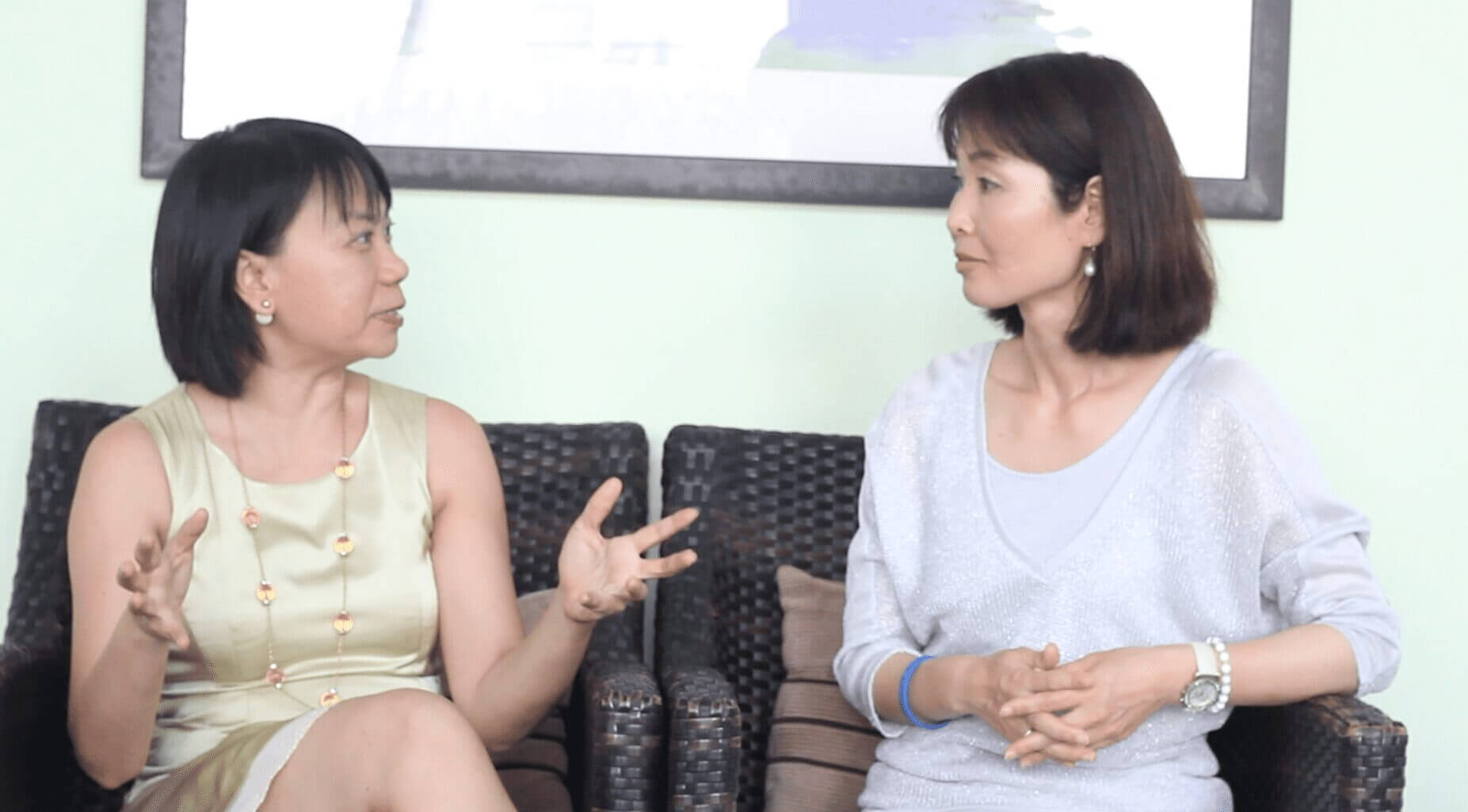(This is one in a series of articles and interviews about conscious business leadership, which is about leaders creating and promoting workplaces of understanding, honesty, and compassion, for the betterment of their employees, their community, their organization and world.)
Kimiko Bokura is a pioneer in bridging the East and West. After working in brand management in global corporations, she has since moved on to assisting business leaders for better performance, leadership, and mental health through mindfulness in Japan, the U.S., and Europe. She is the founder of the Mindful Leadership Institute in Japan (http://mindful-leadership.jp/mindfulness/), an organization that “supports individuals, teams, and organizations in developing mindfulness, clarity, wisdom, compassion and inner sustainability.” Kimiko divides her time between Japan and the U.S. (Santa Cruz, California).
The following is from our discussion in Singapore after the Wisdom 2.0 Asia conference.
Today, I’m delighted to be able to interview Kimiko Bokura, who is the founder of the Mindful Leadership Institute in Japan. Could you tell us a bit more about what you do?
Yes. My company brings mindfulness, or what they call “Mindfulness Training”, to Japanese corporations and organizations and NGOs. And this is a training that basically enhances operation systems or brands.
How is Mindfulness a way of improving a leader or company’s ability to use their mind.
There are so many corporate trainings that provide you with more skills – skill enhancement or more additional skills. However, when things get tough, or stressful, it goes out of the window. So, the key is how can you be resilient, how can you be centered when things are tough, and still keep on managing your emotional states or awareness. And mindfulness brings about that.
Why did you see this was needed for Japan?
Well, two reasons. One is really alleviating the negative and the other one is really enhancing the positive. Elevating the negative part is because of the stress and work hours. You know, there are a lot of sick leaves, or people leaving the company after corporations investing so much money. So mindfulness is actually proven to improve the stress management so that we are trying to reduce those negative parts.
Another part is we’re finding out how mindfulness really enhances performance, because it improves emotional intelligence, which is necessary for leaders, salespeople, and even people working in high-tech as well.
Now for any company, to invest money and time right, there must be a business case for mindfulness. Please elaborate. How does this work in Japan?
There is a lot of profit and revenue loss because of the absentees, or sick leaves, or lack of performance because of stress or not being aligned or not being engaged in work. You know, some statistics said 80% of people are often not engaged with their work.
By improving that through mindfulness, they can increase their profitability, also loss caused by stress, or sick leaves and things like that.
Obviously there is a reason for people to put it in the company. Since there are the long hours that Japanese workers work. Now for the leaders, why are they doing mindfulness for themselves?
Leaders themselves have to find out their own way too in managing stress. How do they do that? They really have to be able to notice what’s happening inside and their own wisdom. They have to depend on their own wisdom and their own intuition as well. And in order for us to do that, really, mindfulness helps to quieten and enhance the clarity of their mind.
Maybe you could share with us one way that mindfulness was taught to a leader or to a company, and how they implemented it in a company and the success of that.
We do straight mindfulness training for the leadership, but recently, we just experienced a very unique situation. This is a company, they already had a coaching program for the managers so that they can talk or they can communicate with their staff better. And they were wondering whether to proceed with continuing or not because they didn’t really see the difference. We were asked to introduce mindfulness as a part of coaching program to enhance their communication skills.
What happened is their sensory, or listening skill, and also speaking skill was subjectively reported, but enhanced, because when we talk or when we listen, how much attention do we really pay? We are thinking about what kind of advice should we give and as we listen, actually, we’re really not 100% paying attention to them.
And simple mindfulness training really helps you to focus on what this person is saying. Therefore, you get really precise and clear information to really assist or support your staff. So that’s one of the really unique situation we’ve experienced.
This is definitely a core leadership skill to bring out the best of your staff, to clear them clearly, right? To help them, maybe, hear themselves clearly.
Right, and it enhances the relationship, or even the team rapport. And it’s not that complicated.
It’s almost like a shift. So when you say listen mindfully, or listen deeply, what is the shift that the leader needs to make?
Leaders habitually force themselves to come up with the solution, come up with the next step. So, their mind is always in the future. And mindfulness is kind of discipline to come back here and now, and focus on exactly what kind of information, or ingredients is presented. By listening mindfully, and by interacting mindfully, the leaders can take the raw data, the real raw data, the more precise and clear, instead of really putting themselves into the future.
If there were Japanese companies that were wondering – why they should choose you, or why they should hire a mindfulness person – what will you tell them?
I and my colleagues have very unique backgrounds. Three of us have a deep practice in mindfulness. Each of one us has at least five to six years of mindfulness training and practice. And also, we bring different things to the plate. For example, I live in California, and I bring the best, the latest, what I believe, the mindfulness contents, the program, including “Search Inside Yourself” – a mindfulness program developed in Google. And I’m one of the first Japanese trainers certified to bring that for Japanese corporations.
That we can do, both in English or Japanese. And two other colleagues, have at least 30 years of consulting and coaching experience. Also, they are published authors as well, so they have a capability to modify or customize mindfulness training for each corporation easily.
For the benefit of my audience, one tip for a leader. One thing a leader can do today to be more mindful.
Be courageous to stop. Instead of going into the future, planning, doing something, be courageous to stop and pay attention to what is going on.
You can find out more about Kimiko at the Mindful Leadership Institute in Japan at http://mindful-leadership.jp/mindfulness/































